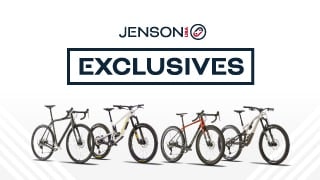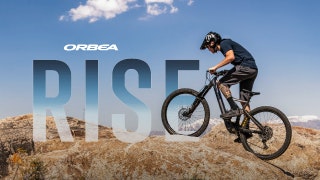Featured Brands
Recommended Products
Get free shipping, on most items, with your $50 purchase today! Same day shipping on most orders if placed by 3pm PST.
PLEASE NOTE:
This offer is only available to physical shipping addresses in the 48 continental United States (no PO Boxes), and some exclusions apply.
Oversize Charges
Some large and/or heavy items are subject to additional oversize charges that are separate from standard shipping costs.
Bike Build Process
All bikes are built, tested, tuned, and ready to ride upon shipment. The bike build process typically takes 2-3 days to complete depending on the bike model and the complexity of the build.
Stock Status
Orders for in-stock items placed by 3PM PST usually ship on the same day. Orders that include special-order or backordered items may be subject to shipping delays depending on product availability. Refer to estimated delivery times in cart when selecting shipping options.

Our Gear Advisors are Ready to Help.
If your legs are the engine, the rear hub can be considered the drive shaft of your bike. It’s the central component of the rear wheel, where the all the torque that you produce gets transmitted from the cranks through the chain and into the rear wheel that propels you forward. The hub connects to the rim and tire via spokes.
The rear hub itself consists of a body (usually aluminum) and a set of bearings on each side. The wheel axle threads through the body and spins on the bearings. The axle is secured to the frame with a quick-release or thru-axle (or bolted on in some cases). The hub flanges, located on either side, have holes for the spokes, and if you use disc brakes, there will a mount on one side for the rotor. There are two type of rotor mounts: 6-bolt and centerlock.
The main difference between a front and rear hub is that the rear hub has a freewheel on the drive side. It’s a splined metal tube that holds the cassette or sprockets. Inside of it are spring-loaded pawls that make the distinctive freewheel sound when you are coasting.
When shopping for a new rear hub, it’s important to know things like what type of axle your bike uses (thru-axle or quick-release) and what is axle diameter your frame has. There are several standards, especially for mountain bikes, some of which use the wider “Boost” spacing. You also need to know how many spoke holes the rim has and what type of brakes you are using, disc or rim.
Once you have all that information, you can choose the perfect hub to match your bike, riding style and budget. High-end hubs such as Chris King models typically have sealed bearings and high-quality materials. Some less expensive models have cup and cone bearings, which may be fine if you don’t ride in a lot or rain or muck.
We carry rear hubs from top brands like Chris King, DT Swiss, Hope Technology, Industry Nine, Mavic, Shimano, and SRAM. If you’re looking to replace a hub or build up a new wheel, feel free to call one of our Gear Advisors today at 888-880-3811 to help you find the perfect setup for your bike and riding style.




